1. Memory(persistence of learning over time through storage + retrieval of info)
1.1. Amnesia(forgetting)
1.1.1. retrograde amnesia
1.1.2. Ebbinghaus' forgetting curve/retention curve (rapid drop, then levels off)
1.1.3. anterogade amnesia
1.1.4. source amnesia (attribute wrong source of event)
1.1.5. repression(psychoanalytical, defense mechanism)
1.2. processing
1.2.1. 3 Stage processing model
1.2.1.1. sensory memory
1.2.1.2. short term (memory that holds few items briefly)
1.2.1.2.1. working memory (new understanding, conscious/active processing of incoming info)
1.2.1.3. long term (limitless storehouse)
1.2.2. Encoding(processing info into memory system)
1.2.2.1. how we encode
1.2.2.1.1. parallel processing (processing of many info simultaneously)
1.2.2.1.2. automatic processing (unconscious encoding of incidental info)
1.2.2.1.3. effortful processing (requires attention/conscious effort)
1.2.2.1.4. mnemonic devices (memory aids)
1.2.2.1.5. organizational
1.2.2.2. what we encode
1.2.2.2.1. acoustic encoding (sounds)
1.2.2.2.2. visual encoding (pictures)
1.2.2.2.3. semantic (encoding of meaning)
1.2.3. retrieval(process of getting info out of memory storage)
1.2.3.1. retrieval cues
1.2.3.2. recall (measure of memory, retrieve info learned earlier)
1.2.3.3. recognizing (person identifies info previously learned)
1.2.3.4. relearning (assesses amount of time saved when relearning)
1.2.3.5. context effects
1.2.3.5.1. deja vu ("ive experienced this before)
1.2.4. storage(retention of encoded info over time)
1.2.4.1. sensory memory (brief recording of sensory info into memory)
1.2.4.1.1. iconic (momentary sensory memory of visual stimuli)
1.2.4.1.2. echoic (momentary sensory memory of auditory stimuli)
1.2.4.2. Long term potentiation (LTP): increase in synapse's firing potential
1.2.4.3. implicit memory (retention ind, nondeclarative)
1.2.4.4. explicit memory (memory of facts, declarative)
1.2.4.5. hippocampus (neural center in limbic system)
1.2.4.5.1. explicit
1.2.4.6. cerebellum
1.2.4.6.1. rear of brainstem, forming + storing implicit memories by classical conditioning
1.3. affect on mood
1.3.1. mood congruent memory (tendency to recall experiences consistent with one's mood)
1.4. interference
1.4.1. proactive (prior learning disrupts recall of new info)
1.4.2. retroactive (new learning disrupts old info)
1.4.3. misinformation effect(incorporating misleading info into one's memory of an event)
2. thinking
2.1. prototype
2.2. mental set
2.3. framing
2.4. heuristic
2.4.1. representative heuristic
2.4.2. availability heuristic
2.5. belief perserverance
2.6. creativity
2.6.1. sternberg's 5 components of creativity
2.6.1.1. expertise
2.6.1.2. imaginative thinking skills
2.6.1.3. venturesome personality
2.6.1.4. intrinsic motivation
2.6.1.5. creative environment
2.6.2. convergent thinking
2.6.2.1. left parietal lobe
2.6.2.2. intelligence test
2.6.2.3. one answer
2.6.3. divergent thinking
2.6.3.1. frontal lobe
3. problem solving
3.1. obstacles
3.1.1. confirmation bias
3.1.2. fixation
3.1.3. functional fixedness
3.1.4. overconfidence
3.2. what assists problem solving?
3.2.1. algorithm
3.2.2. heuristic
3.2.3. insight
3.2.4. intuition
4. Language
4.1. Stages
4.1.1. Babbling
4.1.2. one word
4.1.3. two word
4.1.3.1. telegraphic speech
4.2. components/structure
4.2.1. phonemes
4.2.2. morphemes
4.2.3. syntax
4.2.4. grammar
4.2.5. semantics
4.3. how do we learn language?
4.3.1. critical period
4.3.2. Chomsky
4.3.2.1. inborn universal grammar
4.3.2.2. language acquisition device
4.3.3. Skinner
4.3.3.1. operant learning
4.4. Connection to thinking
4.4.1. linguistic determinism (whorf)
4.4.2. theories of language learning + thinking
4.4.2.1. different languages embody different ways of thinking
4.4.2.1.1. bilingual advantages
4.4.2.2. intertwine
4.4.2.2.1. words influence our thinking
